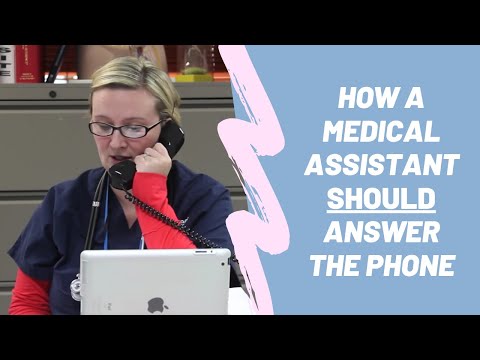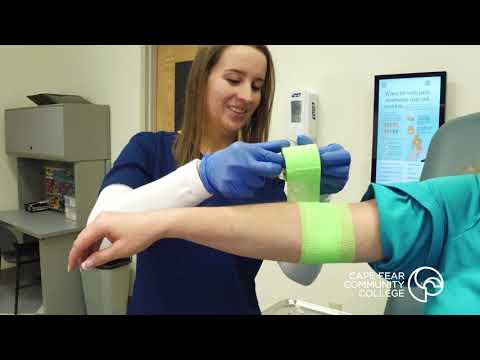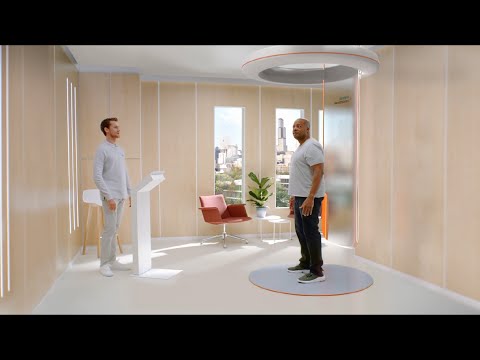Medical Assistant Telephone Techniques You Need to Know
Contents
Medical Assistant Telephone Techniques You Need to Know – Learn how to use proper telephone techniques as a medical assistant
Checkout this video:
Introduction
As a medical assistant you will be the first person that patients speak to when they call the office. It is important to remember that first impressions are everything, and in order to ensure that patients have a positive experience with the office, it is important to have excellent telephone etiquette. Here are some tips on how to be a professional medical assistant on the phone:
-When answering the phone, always answer with a smile. Smiling while on the phone conveys a friendly and positive attitude, which will make the caller feel more at ease.
-Be sure to speak slowly and clearly. This will help ensure that the caller understands what you are saying.
-Have a pen and paper handy so that you can take down any important messages or information that the caller may need to relay to the doctor or other staff members.
-If you do not know the answer to a question, do not hesitate to ask another staff member for help. It is better to get the correct information than to give incorrect information.
-Always end the call by thanking the caller for their inquiry and for choosing our office.
The basics of telephone etiquette
Good telephone skills are essential for any medical assistant You will often be the first point of contact with patients, so it is important that you are able to communicate effectively and respectfully. Here are some basic tips to remember when you are speaking to patients on the phone:
-Identify yourself and your agency. When you answer the phone, be sure to state your name and the name of the practice or hospital. This will help the patient feel more comfortable and ensure that they are speaking to the right person.
-Be friendly and professional. Greet the patient warmly and let them know how you can help them. Be sure to use a professional tone, even if the conversation is brief.
-Listen carefully. It is important that you listen carefully to what the patient is saying. This will help you better understand their needs and ensure that you are providing them with the correct information.
-Take your time. Do not rush the patient off the phone. Take your time in answering their questions and providing them with any information they need. Remember, they are seeking medical help and deserve your full attention.
-Be sure to get all relevant information. When speaking with a patient, be sure to get all of their contact information, as well as any pertinent medical history or insurance information. This will help make sure that their appointment goes smoothly and that they have everything they need when they come in for their visit.
Answering the phone
One of the most important telephone techniques for Medical assistants is answering the phone. You are often the first point of contact for patients, and it’s important to set a positive tone from the start. Follow these tips to ensure you are giving callers the best possible experience:
– Smile! Even if the caller can’t see you, they can hear the difference in your voice when you smile.
– Speak clearly and slowly. Avoid using slang or abbreviations that the caller might not understand.
– Be polite and courteous. Greet the caller by name if possible, and thank them for their call.
– Listen carefully. Repeat back what you’ve heard to be sure you understand the caller’s needs.
– Do not put calls on hold unless absolutely necessary. If you do need to put a caller on hold, be sure to let them know how long they can expect to wait.
– Never transfer a call without first getting permission from the caller. If you do need to transfer a call, provide clear instructions on how to reach the person or department they need.
By following these simple tips, you can ensure that every caller has a positive experience when they reach your medical office.
Putting patients on hold
There are several reasons why you might need to put a patient on hold during a call. Maybe you need to step away from the phone to grab a piece of information, or perhaps another staff member needs to speak with the patient. Whatever the reason, it’s important to do so in a way that is respectful and professional.
Here are some tips for putting patients on hold:
-Explain why you need to put them on hold. Let them know that you will only be away for a moment and that you will come back as soon as possible.
-Ask if they would like to wait or if they would like to schedule a callback. If they decide to schedule a callback, be sure to get their contact information and follow up in a timely manner.
-If they choose to wait, let them know approximately how long it will be before you can speak with them again. This will help manage their expectations.
-If possible, stay on the line while someone else takes over the call. This way, the patient won’t have to explain their situation again and they will feel like they are still being cared for.
-Thank them for their patience once you are able to resume the call.
Screening calls
As a medical assistant, you will often be the first point of contact for patients calling the office. It is important to have good telephone techniques to ensure that calls are handled efficiently and effectively.
Here are some tips for screening calls:
-Always answer the phone in a professional and courteous manner, using the patient’s name if possible.
-Be prepared to take a message or transfer the call, if necessary.
-Don’t keep the caller on hold for too long – let them know you will be with them shortly.
-If you are unable to help the caller, direct them to someone who can.
Taking messages
One of the most important telephone techniques for a medical assistant is taking accurate messages. When you are taking a message for your boss, remember to get the following information:
-The caller’s name
-The caller’s phone number
-The reason for the call
-A brief description of the problem
-The best time to return the call
It is also important to use a pleasant tone and to let the caller know that you will give the message to the doctor as soon as possible.
Dealing with difficult callers
It’s inevitable — you’re going to have to deal with difficult callers from time to time as a medical assistant. But don’t worry, there are some tried and true telephone techniques you can use to diffuse the situation and turn a challenging caller into a satisfied customer.
Here are some tips to keep in mind when dealing with difficult callers:
-Remain calm and professional at all times
-Don’t take anything the caller says personally
-Listen carefully and sympathize with the caller’s problem
-Apologize even if it’s not your fault
-Get more information if you need it
-Offer a solution or next steps
-Follow up after the call
Avoiding personal calls at work
It’s important to be educated on telephone techniques for Medical Assistants as you will be using the phone often throughout your work day. You will be expected to know how to handle different types of calls in a professional manner, and part of that is handling personal calls at work.
It’s inevitable that you will get personal calls at work from time to time, but it’s important to avoid them as much as possible. If you must take a personal call, there are a few things you can do to make sure you’re handling it in a professional manner.
First, if possible, step away from the phones while you take your call. This will allow other medical assistants to still be available to answer calls, and it will minimize any disruptions caused by your personal call.
Second, keep the call brief and avoid getting into any lengthy conversations. You want to be respectful of your co-workers and patients who may be trying to reach the office by phone.
Finally, if you have personal calls that are urgent or need to be taken more often than not, it’s best to discuss this with your supervisor ahead of time. They may be able to work with you on finding a solution that works for everyone involved.
Ending the call
There are many times during a phone conversation with a patient where it is obvious the call needs to end. It may be that the patient has answered all of their questions, or maybe they have been on the phone for a long time and it is time to let someone else have a turn. Whatever the reason, there are some telephone techniques you can use to graciously end the call.
You may want to say something like, “It sounds like you have everything you need, is there anything else I can do for you?” If the patient says no, then you can say something like, “I’ll let you go then. Thank you for calling.”
If the patient has been on the phone for a long time, you might say something like, “I see that we’ve been talking for quite a while. Is there anything else I can do for you or shall I let someone else help you?” Again, if the patient says no, then you can thank them for calling and end the call.
Another way to end a call is to simply ask if there is anything else they need and when they say no, thank them and say goodbye.
Ending a call doesn’t have to be complicated. Just remember to be polite and thank the patient for calling.
Following up
An important part of being a medical assistant is knowing how to use the telephone effectively. You will be expected to use the telephone to make appointments, take messages, and transfer calls. You may also be asked to make reminder calls to patients about upcoming appointments.
When you are following up with a patient, it is important to be courteous and professional. The following are some tips for following up with patients:
-Identify yourself by name and position.
-State the purpose of your call in a brief, polite manner.
-If the patient is unavailable, ask if there is a time when you can reach them or if you can leave a message.
-Thank the patient for their time.







